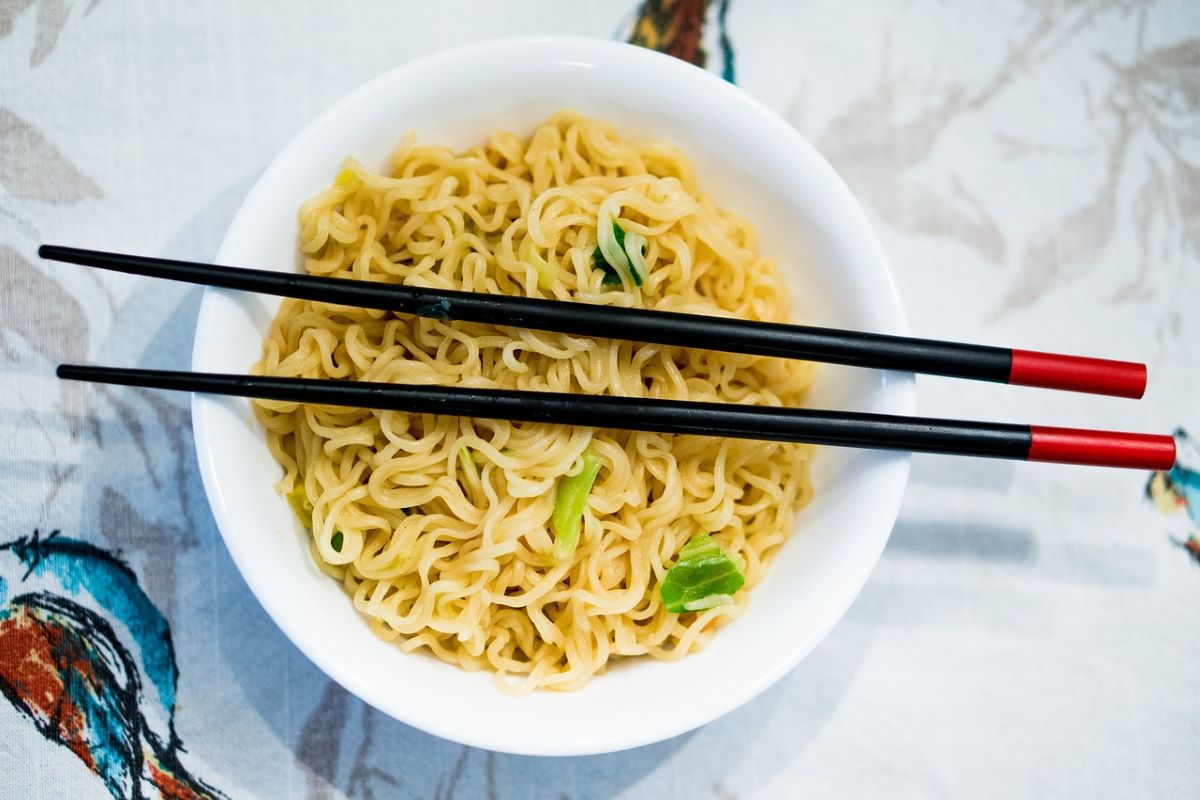Ramen noodles have a long shelf life and typically come in a large package, which means they can be quite cost-effective. They are usually sold in packages to carry convenience and ease when purchasing. The food and grocery industries are filled with many people discussing whether ramen noodles expire.
The fact is, ramen noodles do not expire. However, there are some things you should keep in mind if you plan on eating them:
First and foremost, ramen noodles should always be eaten when they are fresh. The longer you wait to eat them, the more flavor they lose. If you want to enjoy your ramen noodles at their best, then be sure to cook them right away.
Second, ramen noodles can go bad if they are left out in the open for too long. If you leave your ramen noodles sitting in a bowl or on top of a countertop, they could begin to mold or go rancid over time. Ensure to store them properly and avoid leaving them out where insects like ants might get into them.
Finally, remember that although these delicious little noodle packets may last for years without spoiling, they won’t taste as good as fresh ones. The longer ramen sits on a shelf before being opened and prepared, the less flavorful it becomes—so try not to buy too many at once!
What Is The Normal Shelf Life For Ramen Noodles?
Like most people, you probably have a few packs of ramen tucked away in your pantry or cupboard. As it turns out, there is no set shelf life for ramen noodles—it depends on the brand and the ingredients used to make them.
Ramen noodles are made from wheat flour and water, and other ingredients such as salt and sometimes eggs. Some brands contain preservatives that help extend their shelf life. However, this is not always the case.
It’s important to look at the expiration date on the packaging of your particular brand before consuming it. Many people mistakenly assume that they will last indefinitely without refrigeration or freezing because they are dry noodles–this is not true!
Ramen noodles can last anywhere from one month up to three years after being manufactured, depending on what kind they are made out of. Most manufacturers suggest storing them in an airtight container at room temperature for best results.
Why Do Ramen Noodles Have A Long Shelf Life?
It’s all about the ingredients. Ramen noodles consist mainly of processed white flour and salt, both incredibly stable foods. Unlike fresh pasta or bread, which contain yeast and other ingredients that can potentially spoil, hard wheat flour is a very low-moisture ingredient that will not mold or decay at room temperature. Salt is also very stable in storage, and most salts do not need to be refrigerated.
The other main ingredient in ramen is sodium laureth sulfate (SLS), which makes the noodles so easy to cook—just add hot water! Unfortunately, SLS has been linked with cancer and heart disease.
Ramen noodles also contain monosodium glutamate (MSG), an artificial flavor enhancer that has been shown to cause headaches and diarrhea in some people. Monosodium glutamate gives ramen its savory flavor; without it, the noodles would taste bland and unappealing.
What Will Cause Ramen Noodles To Become Spoiled?
The most common way ramen noodles spoil is when they are left in a damp environment for too long. This can include leaving them out on the counter for an extended period or leaving them in a package that was not completely sealed.
For example, if you open up a package of ramen noodles and leave it out on the counter overnight instead of putting it into an airtight container, they will begin to go bad much faster than if they were stored properly. Another way ramen noodles can spoil is if they are placed inside something with mold growing on it.
What Is The Best Way To Tell If Ramen Noodles Are Spoiled?
The best way to tell if ramen noodles have gone bad is to look for mold. If mold grows on the package, the noodles are not safe.
If you think you see mold or mildew, do not try to scrape the offending substance off of the noodles. You should just throw them out, as there is no way to tell how far the mold has spread into the package.
If you suspect that your ramen noodles have gone bad, you should check for an unusual odor or color. Any discoloration or strange smells may indicate that they are not safe to consume.
What Happens to Ramen Noodles Once They Have Expired?
While the shelf life is long and expiration dates are rarely hit, once they do expire, you should toss them. Eating expired ramen noodles can lead to some dangerous health consequences.
Usually, you’ll know that your noodles have expired when they start to turn white and develop a moldy coating. Ramen noodles are not like other foods since they’re packed with preservatives. Most other foods start to grow bacteria after only a few days, but the shelf life is so long that they can last for years!
However, if you come across an old package of ramen noodles, it’s best not to consume them. The preservatives in these noodles start to break down after too long, leaving the food vulnerable to harmful microorganisms.
If you eat expired ramen noodles, they can cause several health problems, including:
- Diarrhea and vomiting
- Nausea or stomach cramps
- Headaches
- Fever and chills
- Muscle aches
What Is The Best Way To Store Ramen Noodles?
Store dried ramen noodles in an airtight container, such as a plastic bag or glass jar with a lid. The container should be kept away from heat sources like stoves and ovens because the hot air could cause mold growth on top of the noodles if they aren’t protected properly by being kept sealed inside something else like aluminum foil or cling wrap first before being placed into an airtight container (and then wrapped again). Be sure to check regularly for signs of mold growth before using any ramen.
Conclusion
Ramen noodles will last for many years without any noticeable change in quality. The problem is that they need to stay clean, dry, and cool. This means they should be kept in a cool, dry, and airtight container. If the container is kept or carried around outside, it needs to be protected from direct sunlight and rain. To keep them perpetually fresh, you may freeze the noodles after opening the package but once thawed; you must consume them within two days.
You May Like These Articles As Well:
 Being Human
Being Human





